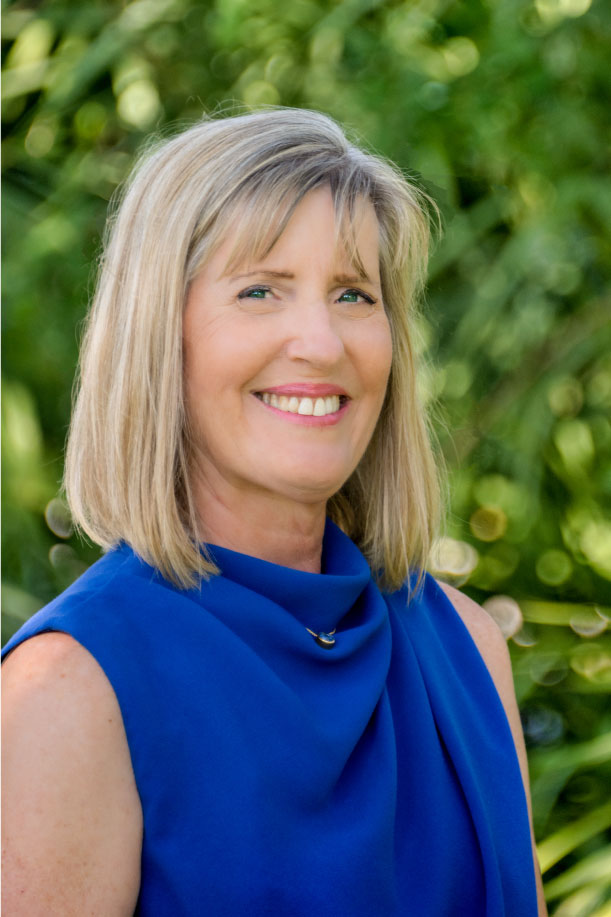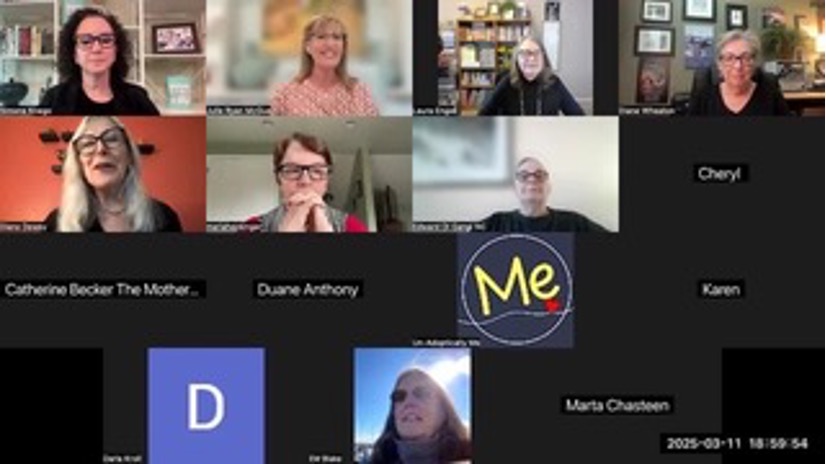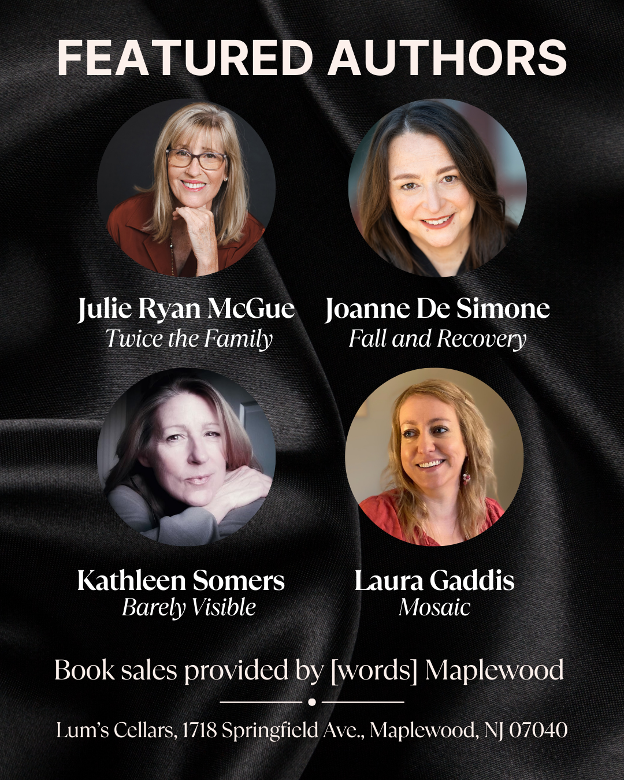Pride, Aging, and the Importance of Friendship

Julie McGue
Author
“I know I should feel guilty or something,” I said, my fists balling up in my lap.
My friend Linda studied me over the Caesar salads we always enjoy at our favorite waterfront restaurant. I’d spent the first part of our lunch date whining about my ninety something mother’s latest escapade in thwarting my efforts to manage her financial matters. A role my dad asked me to assume a decade ago once his health began declining.
“But I don’t feel bad about the argument I just had with her.” I shook my head and sighed. “I’m telling you. If it’s not her silly pride, then it’s her stubbornness. One of those qualities is always at odds with what I’m trying to do: make her money last.”
Over the years, Linda has been privy to countless tales about the complicated relationship I share with my adoptive mom. Linda is aware of the breast biopsy I had in 2008, a procedure that necessitated the search for my birth relatives to access crucial family medical history. My mom’s lack of support and interest during that important search, a grueling saga that consumed five years, had put a rift between us. It has taken years for acceptance and forgiveness to settle in for both of us.
Our falling out had not only saddened me, but it also disappointed me. Mom couldn’t set aside her displeasure over the search and the idea of the re-appearance of the other mother. It took a while for her to share that she feared sharing the “mother” role with my birth mom. But hadn’t she always known that she shared that role, I wondered? Why she had felt threatened— particularly since Mom and I had built a fifty-year bond— had been unfathomable to me. As a mother myself, I also couldn’t imagine her stance—placing her insecurities in front of my very real needs. And even though she never spoke the words, “it’s her or me,” at the time it felt as if she had drawn a line in the sand. Linda knew all these hurts and had supported me through it just like a good friend, an old reliable friend, would do.
Pushing her salad aside, Linda took a long sip of sweet tea. She smiled softly at me, her soft brown eyes crinkling at the corners.
“I’m listening. Go on,” she said.
As I absorbed those words and shifted in my seat, letting my spine find the back of the rattan chair, some of the strong emotions I’d felt earlier faded.
In a calm voice, I continued. “I set everything up just like I had done when Dad got sick. Called the long-term care insurance provider, filed a claim for the expensive caregiver service—fees mom cannot afford by the way—and set up the appointment for an outside nurse to evaluate her living situation at the senior center.” I frowned, folding my napkin in a neat square in my lap. “All we needed was for Mom to meet with that nurse and verify the list of daily life activities for which she was receiving assistance.”
I gestured, pointing around the table at the imagined scene and characters, as I explained, “Mom’s caregiver was present for the appointment; the walker Mom uses was beside her chair.” I paused for effect. “Mom looked the nurse evaluator in the eye and said, ‘I can do all those things for myself. I don’t need help, and I don’t need the walker either.’ Can you imagine, Linda? Why did she let her pride get in front of the benefits we need her insurance company to pay out? That she deserves, I might add?”
Linda giggled. “I’m sorry. I know I shouldn’t laugh. I get why you’re upset,” and then she lifted a hand, covering her mouth to stifle a big laugh. “It’s just… I’m remembering all those times you dealt with your mom’s bank, over… what was it?”
“Mail fraud!” I blurted.
I marveled at Linda’s ability to see the humor in the ongoing dilemma with my mother; it had the effect of bringing my mood around to a reasonable place.
She sat upright in her matching rattan chair. “Right! Even though you warned your mom about writing out five dollar checks to every charity who solicited her by mail, she did it anyway.” She giggled. “And it backfired, right?”
I leaned in towards Linda, conspiratorially, I quipped, “Yep. Someone scammed her. And don’t forget, all those small donations she made added up to hundreds of dollars that drained her bank account.” It was my turn to laugh. “And, despite all my ranting, she persisted.”
“Remind me. How did she react to that?”
I snorted. “She acted like a petulant child, muttering something like, ‘I’m sorry. I won’t do it anymore.’”
Linda cocked her head at me. “And when it happened again, what was the result?”
I shook my head in wonder, remembering those other difficult times, just a few years back.
“After speaking to my siblings, we made the painful decision to take away her checkbook. I told Mom, ‘I’m doing all your banking online now, so there’s no need to have printed checks anymore.’ She didn’t argue with me. Just dished me a deep frown and some painful silence.”
Linda sat still in her chair. I watched her eyes drift to the boats bobbing in the bay.
“Whatya thinking, Linda?” I quizzed.
Linda’s brown eyes returned and studied my face. “To improve your relationship with your mom, it might be time to hand this mess off to another family member.”
“Hah! I wish!” I said, nearly snorting. “My siblings won’t let me fire myself. Besides, I’m too immersed in the account details to pass this off so easily.”
Linda looked at me sadly as I continued. “My siblings and me, we’re all juggling so much. Jobs. Our own health issues. Families. Grandkids. And then there’s all mom’s doctor appointments.” Linda slid her chair back and eyed me in earnest. “Did I tell you I took her to the dentist, and she had three cavities? One of the teeth had crumbled away, and her bridge is being reworked. Again.”
I sighed, pausing to thinking about Linda’s mom, a woman I had never met because she had died when Linda was in her twenties. My friend had been spared the indignities of watching her mother age and the complexities that went along with that stage in life. But in turn she had been denied so much – sharing life’s important moments with someone who cared deeply about her.
As these important realizations landed, I let everything go: frustrations, anger, disappointment, and regret. I leaned in close and patted my friend’s hand.
“I’m sorry. I’ve gone on too long about this. Thanks for always listening. Nothing’s going to change between Mom and me, and I know that. We have our prescribed roles.” I chuckled the laugh of a resigned soul. “And your role today was to hear my examination of conscience, I guess.”
We exchanged a pair of knowing grins, two aging Catholic school girls acutely aware of the unfolding season of Lent.
Linda smiled a deep knowing grin. “And for your penance, I urge you to call your mother and apologize for lashing out.”
“Okay, okay,” I laughed, “but I’m going to let the weekend pass before doing so. I just don’t think I can be nice right now.”
“That’s your prerogative,” Linda said, signaling for the waitress to bring our check. “As upset as you are, I’m sure your mom is even more so.”
My face sobered. “Good point.”
As we paid the check and sauntered out to the parking lot to say our goodbyes, I thought about the rare gift of long-term friendships such as the one I enjoyed with Linda. The careful listening, concerned support, unbridled honesty, and vulnerability that resides within them. All which fuel friendships’ sustainability.
Lingering by her car, Linda hugged me and told me I was doing a good job. Her words touched me. She is right. That’s the best we can do sometimes—give a hug, get a hug, and remind each other we’re doing our best. These small moments of friendship and personal connection are a lifeline, helping us see we are not as alone as we often feel, even when our feelings show our flawed humanness. We all need a friend who can “hear” us and love us even in our worse moments.
UPCOMING EVENT
Follow Me Here
April 8 & 29 from 1:30-2:30 ET Julie will teach a webinar for the Author Learning Center, titled “How to Write Memoir That Reads Like Fiction.” You can sign up, here.
April 9: Julie will discuss her new book Twice the Family with the Longboat Key Club (LBKC) Book Club from 12 noon to 1:30 ET. Members can sign up on the club website.
April 10: Julie will participate virtually in a Hinsdale IL Book Club discussing her new book, Twice the Family.
April 17: Vine & Verse: A Night of Wine & Words from 6-8 at Lum’s Cellars in Maplewood NJ. Julie will join fellow authors, Laura Gaddis (author of Mosaic), Kathleen Somers (author of Barely Visible) and Joanne De Simone (author of Fall and Recovery). Each author will discuss their book, do a short reading, and participate in a Q&A. (Words) Bookstore will be on hand to sell books at the event. Register here.
April 28: Julie and her twin sister Jenny will participate together in the APOM (Austin Parents of Multiples) Twin Panel at 8 PM ET.
May 24: Twice the Family is the “Book of the Day” at the OnlineBookClub.com.
June 18: Julie has been invited back to the Pottawatomie CC Book Club in Michigan City, IN at 6 PM CT to discuss her recent release, Twice the Family.
Aug. 13: Julie will join the Adoption Knowledge Affiliates Book Club at 7 PM CT to discuss Twice the Family.
Aug. 24-28: Julie will attend the HerSpirit Writing Retreat at the Chaminade Resort & Spa in Santa Cruz, CA organized by StorySummit.

If you missed Julie’s participation in the virtual author panel: Inside the Adoption Experience on 3/11, you can listen to the recording here.
Follow Julie by visiting her website, subscribe to her bimonthly newsletters, and listen to previous podcast recordings where she discusses topics like adoption, identity, family relationships, sisterhood and belonging.
“We all need a friend who can “hear” us and love us even in our worse moments.”
Don’t miss a blog post!
Receive my blog posts directly to your inbox.



